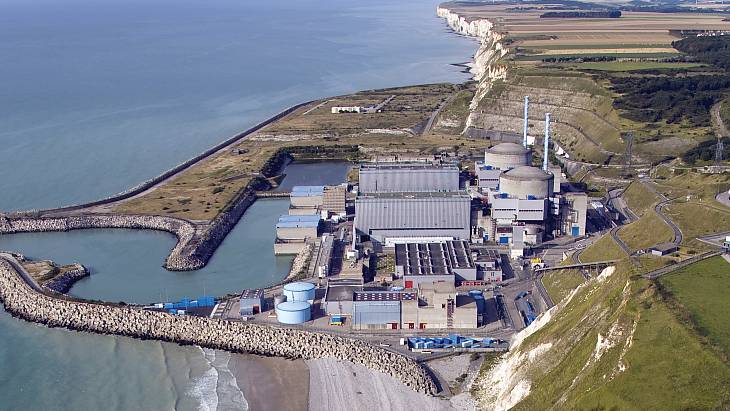
A 13-member team comprising experts from Canada, China, Germany, Slovakia, South Africa, Sweden, the UK, the UAE and the USA, as well as two IAEA officials, completed an 18-day Operational Safety Review Team (OSART) mission to Penly on 21 September. The mission was carried out at the request of the French government.
OSART missions aim to improve operational safety by objectively assessing safety performance using the IAEA's Safety Standards and proposing recommendations for improvement where appropriate.
"We observed that the plant’s senior leadership team held safety as a priority and pushed for improvement in all areas," said team leader John Duguid, Senior Nuclear Safety Officer at the IAEA. "The team also proposed areas in which improvements can be made to further elevate the plant’s safety performance."
The team identified good practices to be shared with the nuclear industry globally, including: the updated plant information project (CONNECT) installed at the plant provides real time access to information and effective support to different function groups; this assists in operator monitoring, remote requests for technical assistance and management of emergent work; the plant installed a remote monitoring capability on safety critical seawater piping that helps in avoiding biofouling through optimising chemical treatment; and the plant developed and installed a system for monitoring sedimentation in the cooling water intake channel.
The mission also provided recommendations and suggestions to further improve operational safety, including that: the plant should improve the implementation of processes related to the testing of the plants installed systems; the plant should improve its preparation, control and implementation of maintenance activities to ensure equipment reliability and personnel safety; and the plant should consider improving the quality and planning of its periodic testing.
The team provided a draft report of the mission to the plant management, which will have the opportunity to make factual comments. These comments will be reviewed by the IAEA and the final report will be submitted to the French government within three months.
"The OSART mission enabled an in-depth assessment of the site and an enriching sharing of the best global practices thanks to the team's combined expertise," said François Valmage, Executive Site Manager of Unit 1 and 2 of the Penly plant. "The recommendations and suggestions will help us ensure a continuous improvement of the plant's operational safety."
Unit 1 of the Penly plant started commercial operation in 1990, and unit 2 in 1992. The two 1300 MWe pressurised water reactors are amongst 56 operating nuclear power reactors in France. Nuclear power currently contributes about 68% of the country's electricity. This figure is expected to rise as France is constructing an additional reactor and plans to construct at least six more.
In June, EDF announced its board of directors had decided to proceed with the planned construction of the first pair of EPR2 reactors at Penly "in response to the expectations expressed" during a national public debate, which took place between 27 October 2022 and 27 February 2023 under the aegis of the National Commission for Public Debate. The company aims to start preparatory work for the new reactors at Penly in mid-2024.